With so much energy focused on containing the COVID-19 pandemic, Governor Janet Mills came to the University of Southern Maine’s Portland Campus to make sure another generational threat isn’t overlooked.
Her one-on-one discussion with journalist Sam Quinones was the centerpiece of a forum about the epidemic of opioid addiction. A large crowd filled Hannaford Hall to hear them speak on Wednesday, April 6.
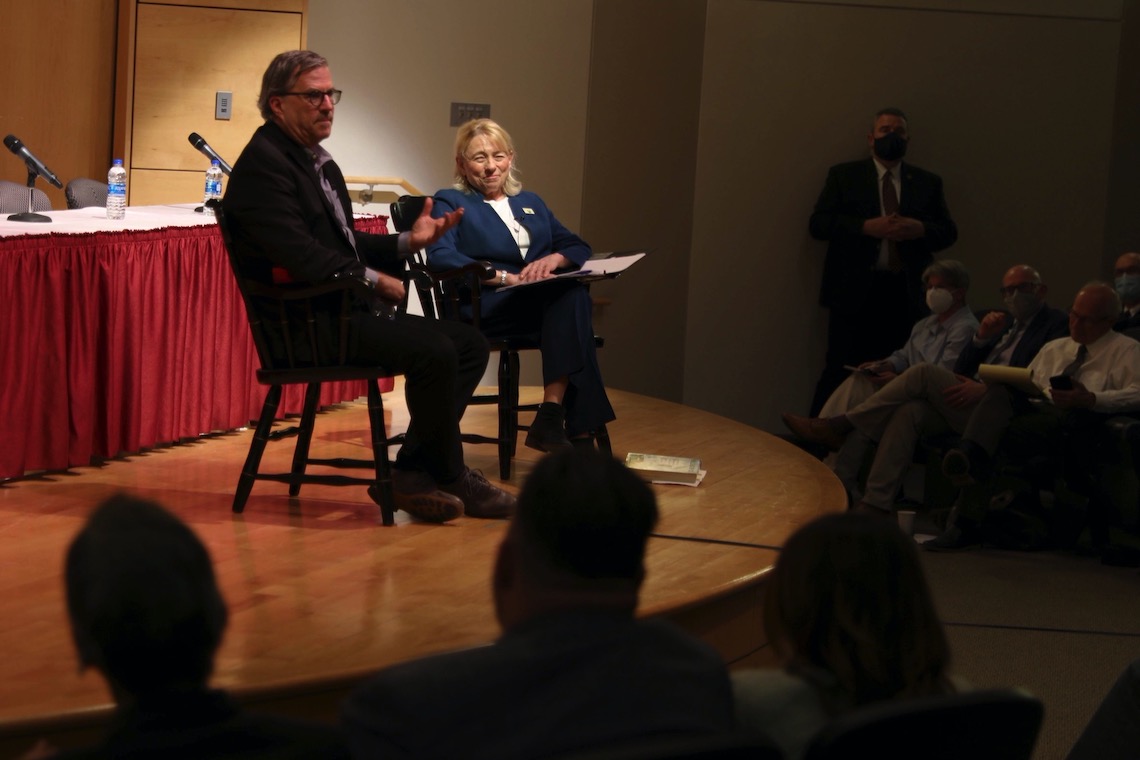
Quinones has reported extensively on the subject. Two of his books, “Dreamland” and “The Least of Us,” were on sale outside the auditorium.
USM President Glenn Cummings opened the program by detailing some of the resources available on campus for people who need help breaking their substance dependency. The Recovery Oriented Campus Center (ROCC) is a hub for those resources, made possible through dedicated funding. Cummings gave the Mills administration credit for investing in a range of support services across the state.
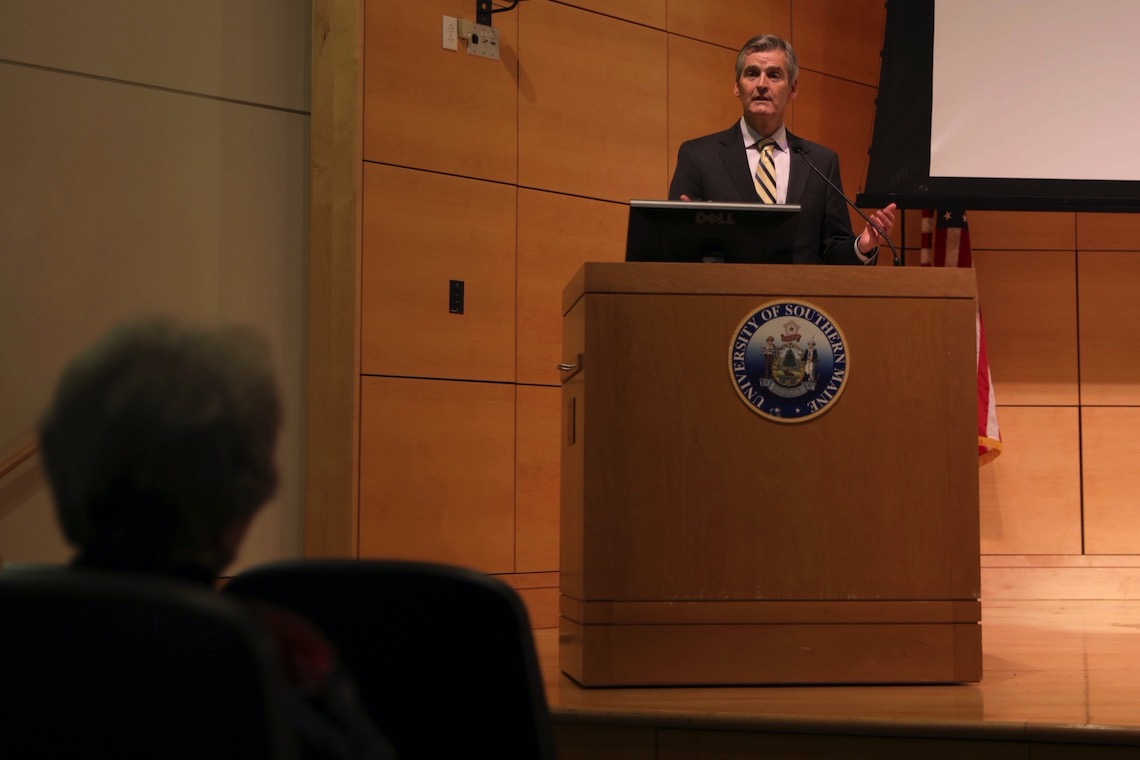
“We’re lucky to have a governor who gets it,” Cummings said.
Distribution of the life-saving overdose medication naloxone has increased during Mills’ tenure as governor. Her administration has also overseen the development of the OPTIONS program, which identifies people with a high overdose risk and connects them with treatment services.
As Director of Opioid Response, Gordon Smith is a key contributor in shaping and enacting the governor’s policies on substance use. He followed Cummings on stage with a message of unity. Addiction doesn’t distinguish between Democrats or Republicans, rural or urban, and the response to it should be just as all-encompassing, Smith argued.
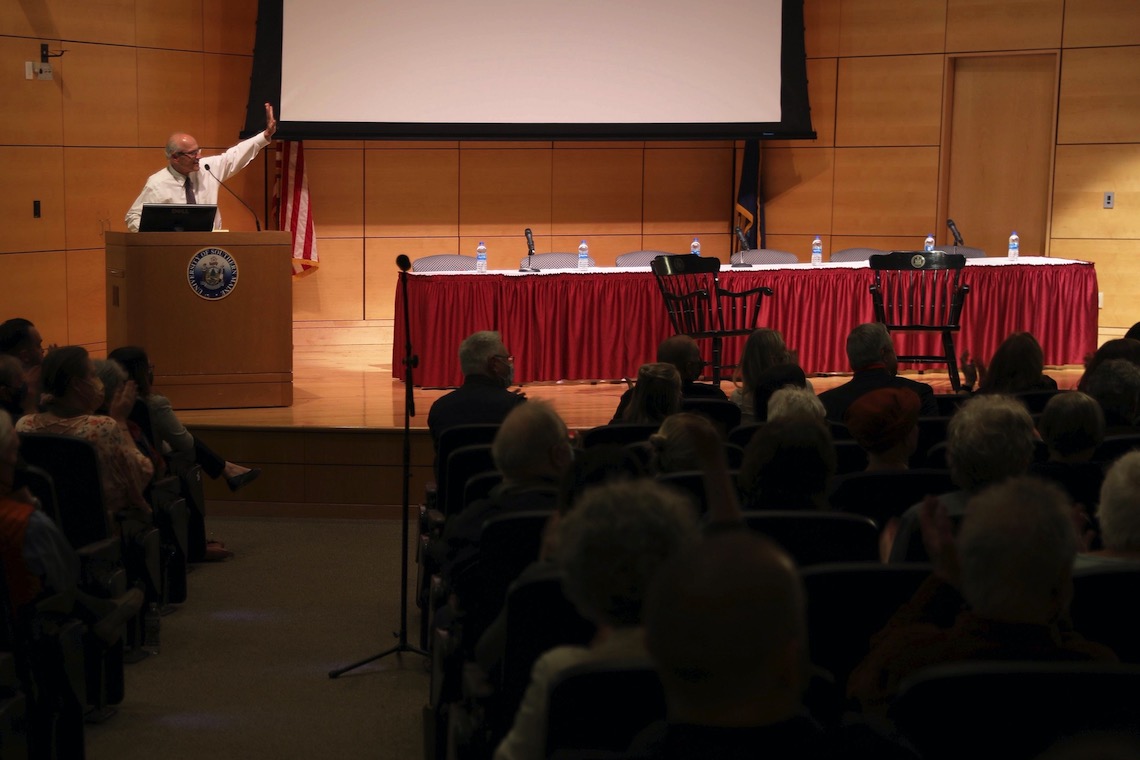
“Maine’s a tiny state,” Smith said, “and we’re all in this together.”
That message got a further boost from a short film that played on the screen over the stage. It showed the toll of addition on not only the people who abuse opioids, but also their loved ones and caregivers. One of the last images to appear on screen were the words “On average, one Mainer dies from an accidental drug overdose every day.”
Mills and Quinones took their seats on stage soon after the lights came up. It was their last stop after joint appearances earlier in the day at Maine Medical Center and the Portland Recovery Community Center. Mills assumed the role of interviewer, often framing her questions around passages from his books which she kept close at hand.
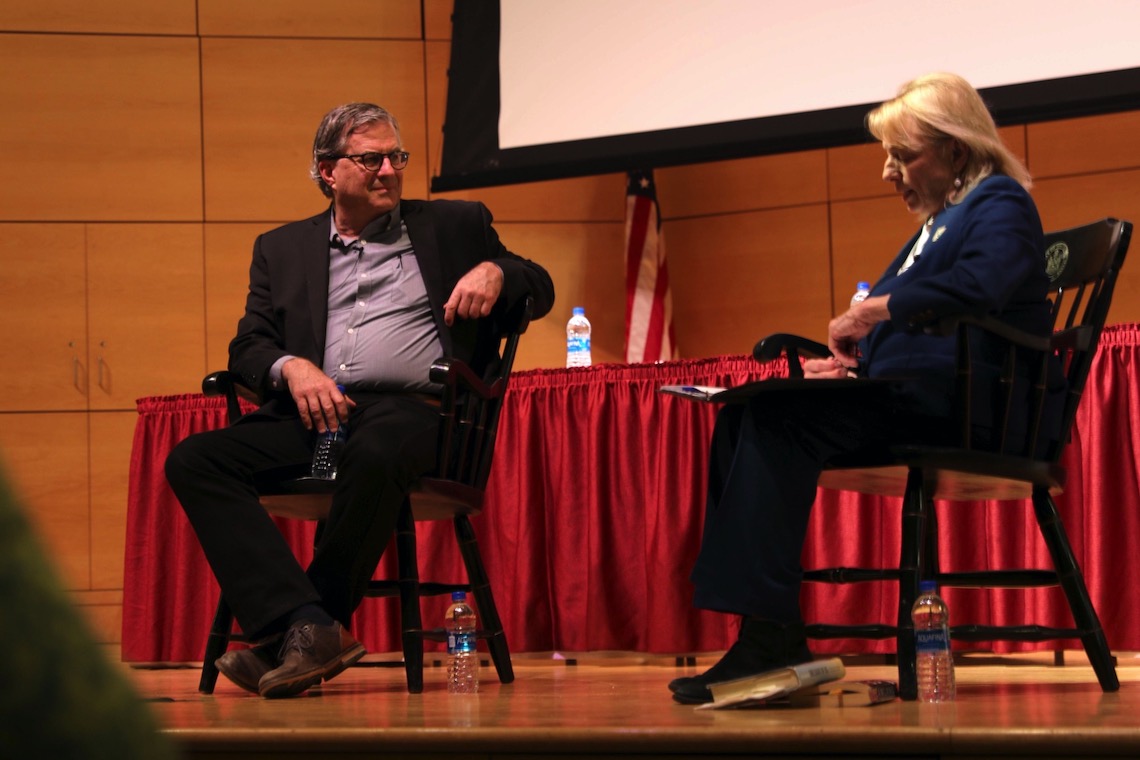
Quinones traced the roots of the opioid epidemic to the 1990s when pharmaceutical companies aggressively promoted painkillers like oxycodone. By the time the drugs were found to be highly addictive, they were already widely available. Desperate users turned to the black market when their prescriptions ran out. Additives like fentanyl made street drugs even more dangerous. Fentanyl turned up in 77 percent of Maine’s overdose deaths last year, according to the governor’s office.
Opioid addiction was already a national crisis when the COVID-19 pandemic hit. The two crises amplified each other. Many people who were prone to substance use fell into addiction when they were cut off from their support system by social distancing and travel restrictions.
While the use of Zoom soared during the early days of the pandemic as a means to stay in touch, Quinones said it was “not a substitute for interaction, for hugging, that arm on a shoulder.”
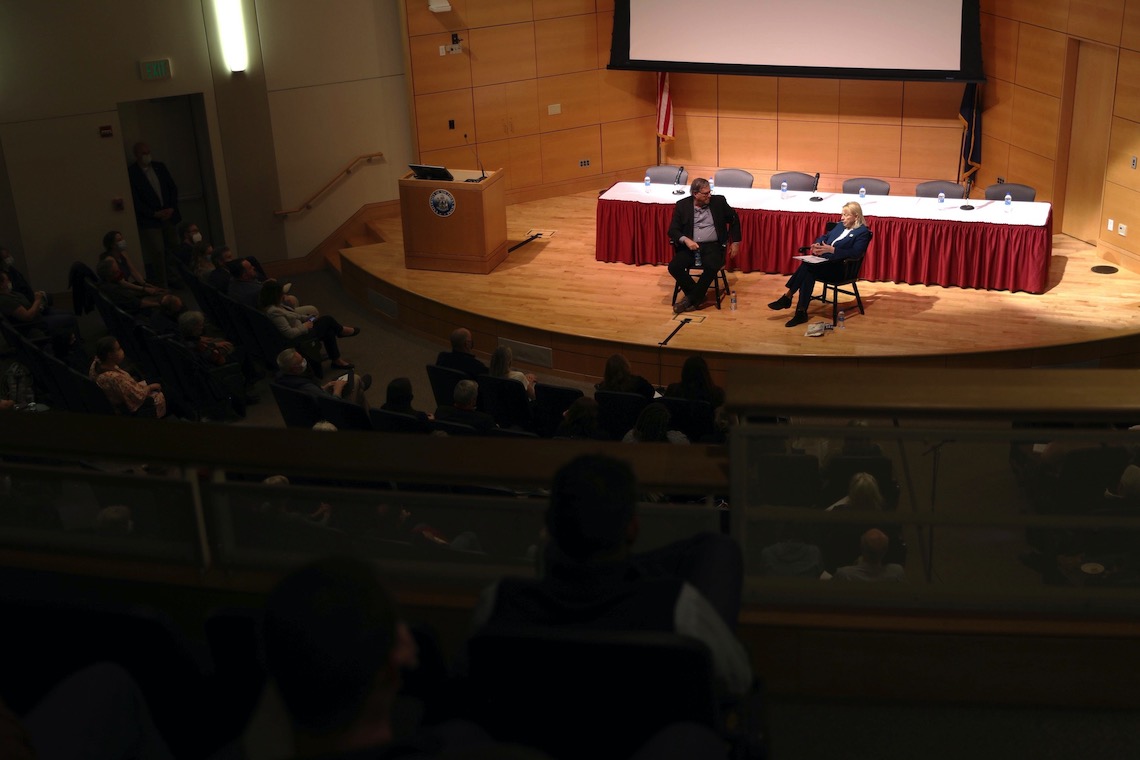
Mills steered the discussion toward solutions by asking Quinones what he meant when he wrote about “life repairs.” He defined the term as the small steps that build collectively toward a bigger goal. By helping drug users obtain medical and dental services, professional clothing, child care, a driver’s license, tattoo removal, and other basic needs, the prospect of getting clean seems less overwhelming.
All of those resources cost money. Quinones referred to the Marshall Plan as a model. Just as the United States invested hugely to rebuild Europe after World War II, a huge investment could also help rebuild the lives that were shattered by the opioid epidemic.
Quinones would like to see the money go to nonprofit organizations and the correctional system. Drug users who spend their time behind bars learning life skills are less likely to reoffend. The nonprofits continue the chain of assistance in the outside world. Securing public enough money to make a difference requires public support.
“We need to create the political constituency for a recovery-ready community,” Quinones said.
His vision for a healthier society doesn’t stop with opioids. He also points to rampant consumption of sugar, junk food, and social media as extensions of a cultural propensity for addition.
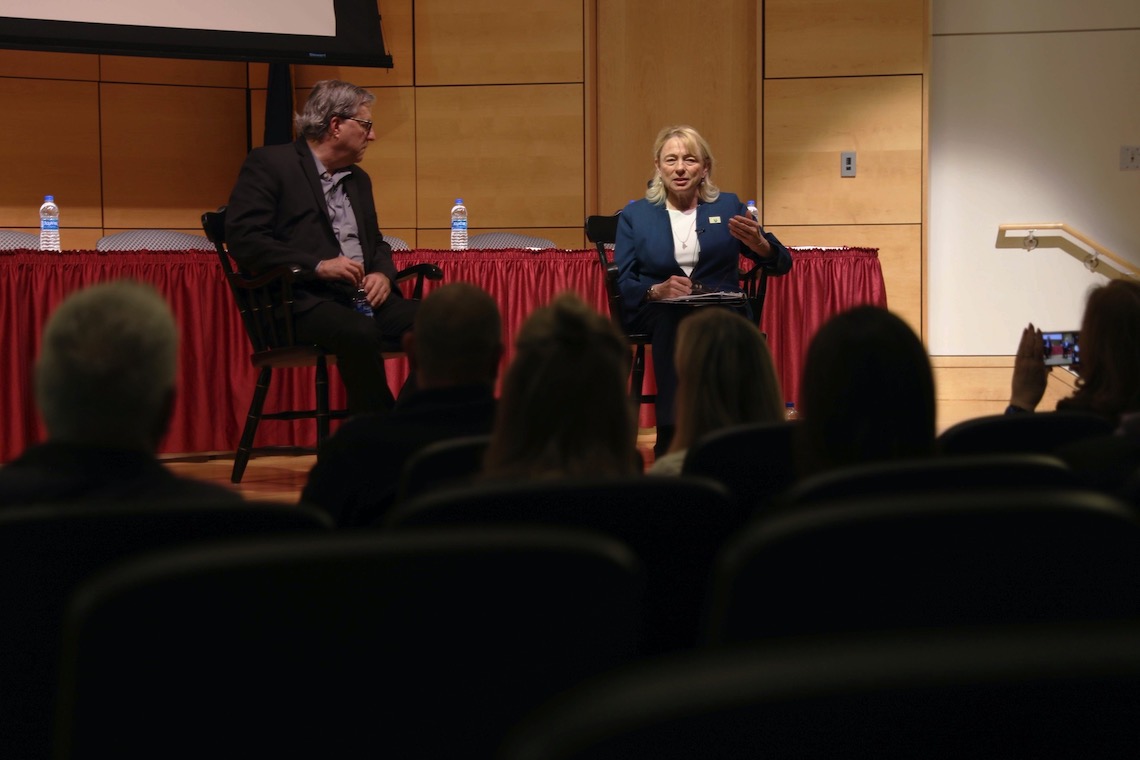
“Here’s the question of the hour,” Mills asked near the end of the program. “How do you prevent people from using these drugs in the first place?”
In answer to her own question, she opened Quinones’ book “Dreamland” and read from the afterward, “The antidote to heroin may well be making your kids ride bikes outside, with their friends, and let them skin their knees.”
“I love it,” Mills said.
Members of the audience next had a chance to ask questions as Mills and Quinones were joined on stage by a panel of experts. Additional events on the subject of addiction are planned across Maine in the coming months, leading up to the governor’s annual Opioid Response Summit in Bangor on July 11.

